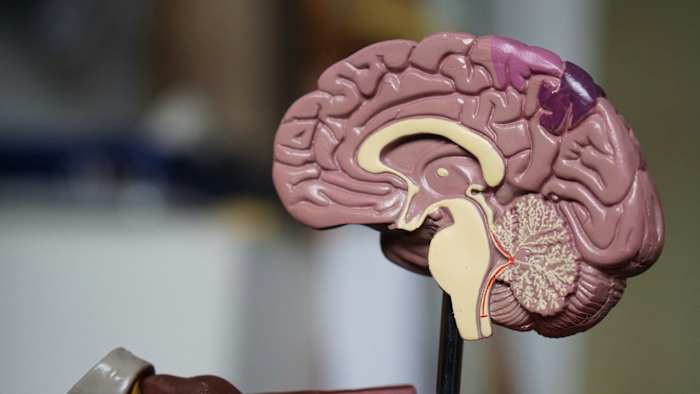DETROIT – Creatine has long been a go-to supplement for athletes looking to build muscle and improve recovery. But new research suggests its benefits may reach far beyond the gym.
Researchers at the University of Kansas Medical Center recently conducted a small pilot study exploring how creatine might affect the brain — particularly in people living with Alzheimer’s disease.
The study involved 20 participants who took 20 grams of creatine monohydrate daily for eight weeks. Nearly all of them completed the trial, and brain imaging showed an 11% increase in total brain creatine. Participants also demonstrated improvements in memory, attention, and other cognitive functions, according to the published results in the Alzheimer’s & Dementia: Translational Research & Clinical Interventions journal.
Henry Ford Health registered dietitian Ruth Franklin said the findings are encouraging — but still preliminary.
“That study found that those patients who were taking creatine had improvement in their cognitive function, their brain health,” Franklin said. “Our body uses about 95% of creatine to go into our muscle cells. After that 95%, there’s still 5% left. Where does that 5% go? It goes to our organs with the most demand, which is our brain.”
Researchers say the results justify larger, controlled studies to confirm the effects of creatine on cognitive function and brain energy metabolism.
From the gym to the brain
At Diligent Fitness in Detroit, owner Carly Britton has been using creatine for years — not for brain health, but for strength and recovery.
“I use creatine because I lift heavy,” Britton said at her gym in Detroit. “I lift three to four days a week, and so I want to feel nice and recovered after those sessions.”
Britton, who uses 5 grams of creatine monohydrate in powder form before workouts, encourages her mostly female clients to consider creatine, emphasizing that it’s not just for bodybuilders.
“I think when people hear creatine, they automatically think that’s something that only bodybuilders need to do,” Britton said. “And so, I try to women, it does not cause the bulk that people think that it does. Creatine is just sort of your battery charger. It helps you go into the gym and work really hard to build the muscle that you’re going to need throughout midlife and beyond.”
Studies show women tend to have lower baseline creatine levels than men, meaning supplementation can have a greater relative effect. Beyond physical performance, research has linked creatine to better mood regulation, hormonal balance, fat metabolism, bone health, and even menstrual and menopause support.
Should you take it?
While creatine is widely considered safe for most healthy adults, Franklin advises caution for anyone considering it as a brain supplement.
“So definitely talk to your family member’s doctor, to see if this would be a great option for them to maybe see that potential improvement in cognitive abilities,” said Franklin.
For now, experts say the study offers a glimpse of what could become a new frontier in nutritional neuroscience — using the same supplement that builds muscle to help power the brain.
Copyright 2025 by WDIV ClickOnDetroit – All rights reserved.

